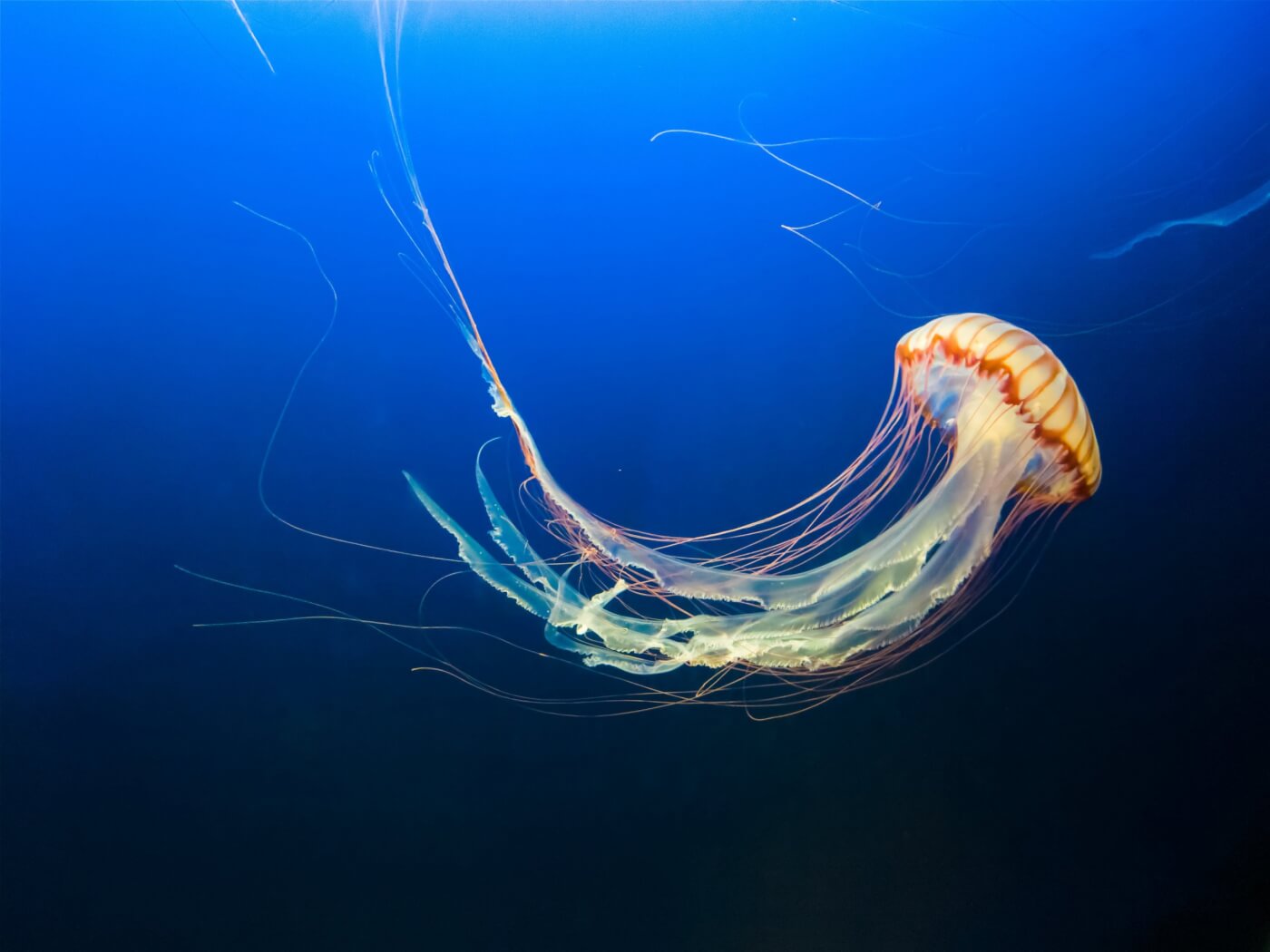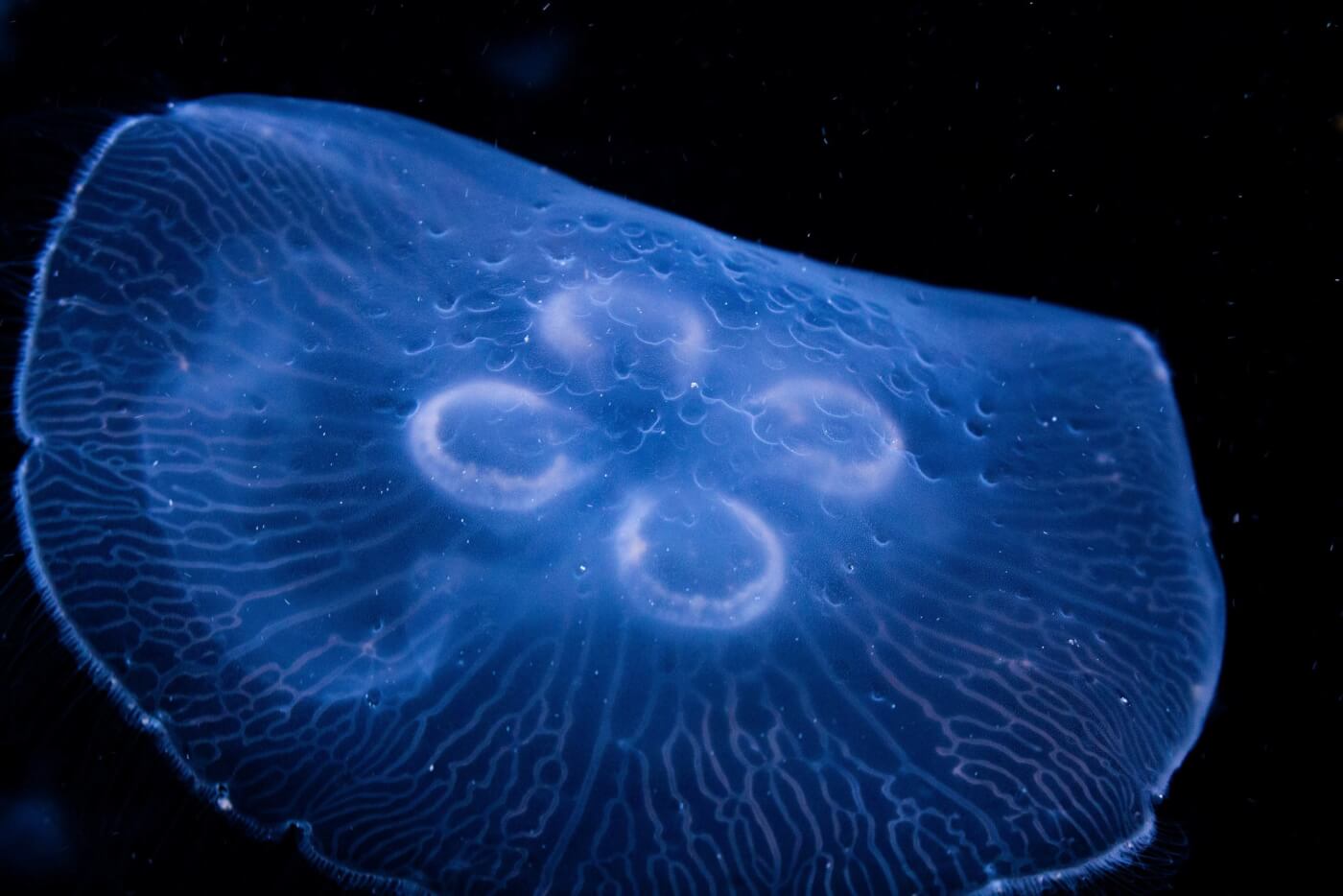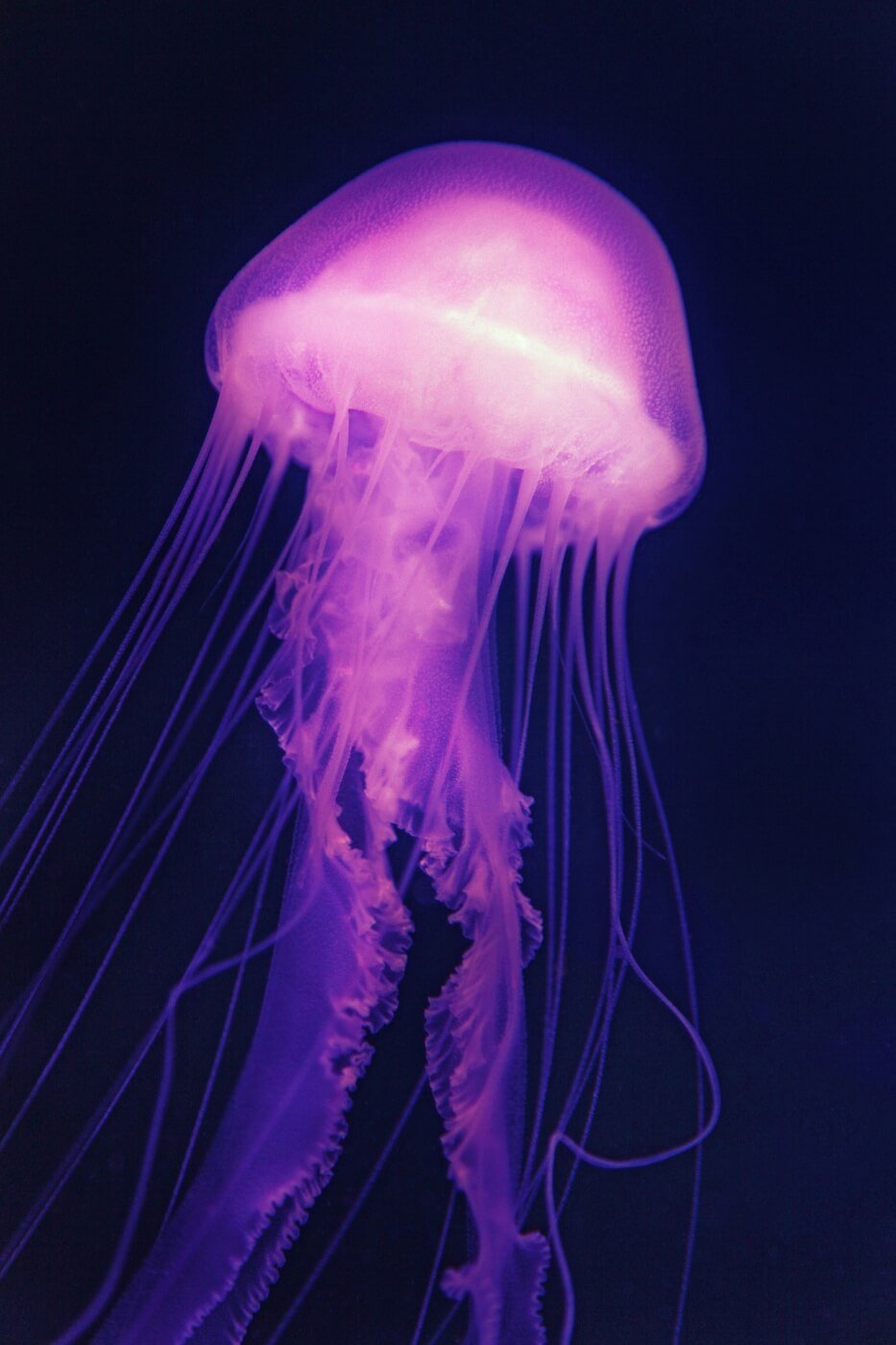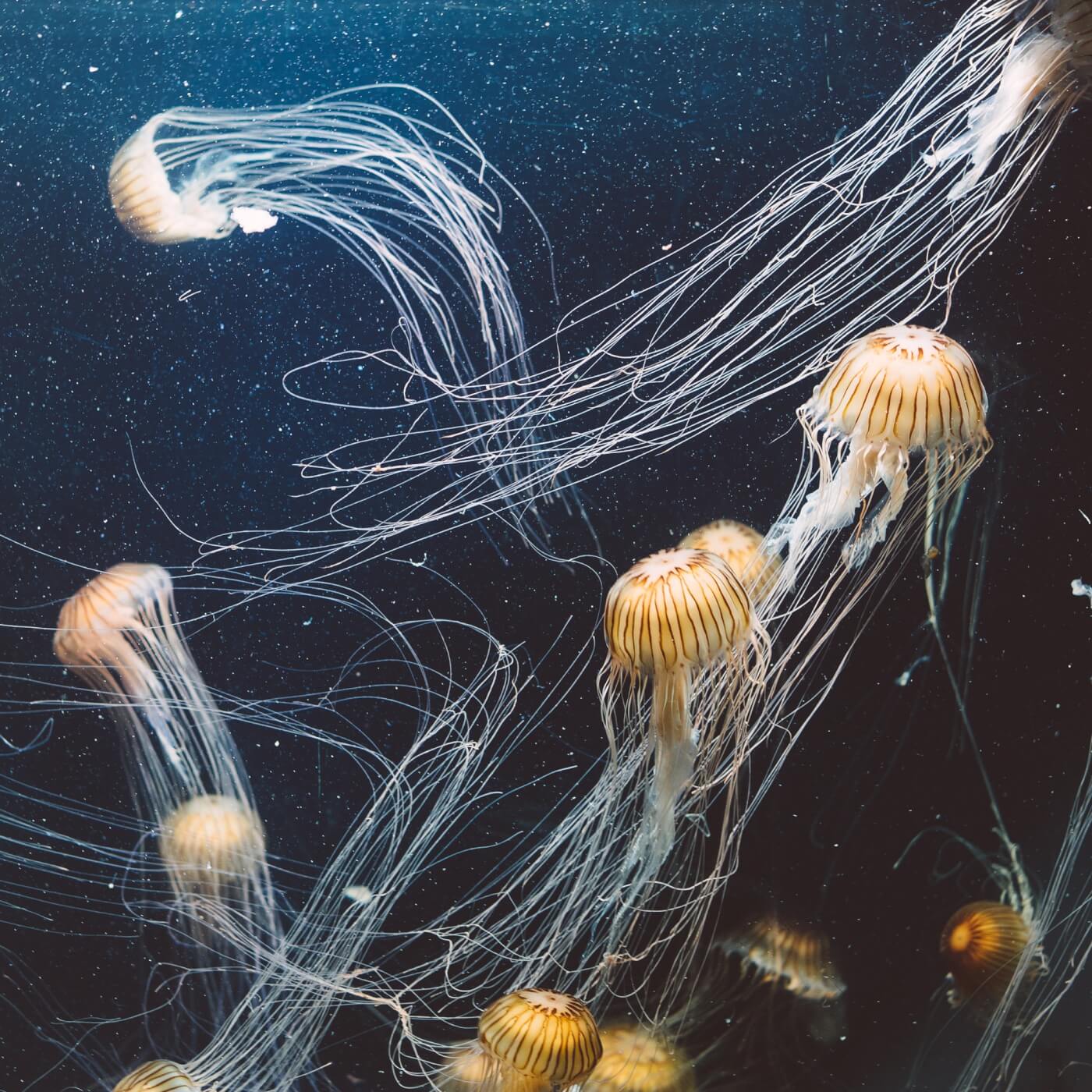For National Jellyfish Day on November 3, dive deep into the world of these mysterious, fascinating animals who have been roaming the ocean for hundreds of millions of years.
More than 2,000 species of jellyfish exist around the world today—but as commonplace as they are, you may not know a lot about them. So put your tentacles together for these nine amazing facts about jellyfish:
1. Jellyfish aren’t really fish.
Even though their name suggests otherwise, jellyfish aren’t actually fish. They’re considered plankton and are closely related to sea anemones and corals , which is why some scientists prefer to call them “jellies” or “sea jellies” instead.
2. Jellyfish are the oldest multi-organ animal in the world.
Jellyfish have no bones, so fossils are hard to come by. Nevertheless, scientists have evidence that these animals may have been around for at least 500 million years. That means they predate the dinosaurs by hundreds of millions of years!
3. They’ve got a lot of nerve.
Instead of a single, centralized brain, jellyfish possess a bodywide network of nerves that communicate with each other, allowing them to detect touch, temperature, salinity, and more. The jellyfish “brain”—composed of approximately 10,000 neurons—is dispersed throughout the animal’s body.
4. Jellyfish can feel.
We don’t know exactly what jellyfish are feeling, but they do appear to respond to their environment. For example, they have a flight response—meaning they swim away from potential danger and toward food.
5. Jellyfish sleep.
In fact, they may be the first-ever animals with no central nervous system to have been observed sleeping. At night, jellyfish become less active and less responsive, indicating that they enter a sleeplike state .
6. Jellyfish can glow in the dark.
Approximately 50% of jellyfish are bioluminescent, meaning they can produce light. The vibrant, colorful hues these animals emit when they glow in the dark aren’t accidental—they use this light to defend against predators and attract prey. Comb jellies, for instance, produce bright flashes of light to startle their predators and give them time to escape. Other jellyfish can release a glowing tentacle as a decoy. Some even send thousands of glowing particles into the water to confuse their predator.
7. Jellyfish don’t sting out of spite.
If you’ve ever been stung by a jellyfish, don’t take it personally—the animals sting only out of self-defense or to capture prey.
8. At least one species of jellyfish is thought to be immortal.
The Turritopsis nutricula jellyfish—colloquially called the “immortal” jellyfish—may be able to cheat death. When threatened, this species is capable of undergoing cellular transdifferentiation, a process whereby the organism’s cells essentially become new again.
9. Some jellyfish perform a “mating dance.”
One jellyfish species has been observed performing a mating ritual that involves a courtship dance. The male uses his tentacles to grab a female’s tentacles, pulling her closer to him. He then uses his tentacles to pass his sperm to one of the female’s tentacles before the pair splits off.
Here’s What You Can Do for National Jellyfish Day
If you want to lend a hand—or a tentacle—to jellyfish and other sea animals, you can start by not visiting facilities like SeaQuest, which trap these magnificent animals in small tanks inside shopping malls for humans to gawk at. Take action by telling it to stop exploiting wild animals and transfer them to reputable facilities:









